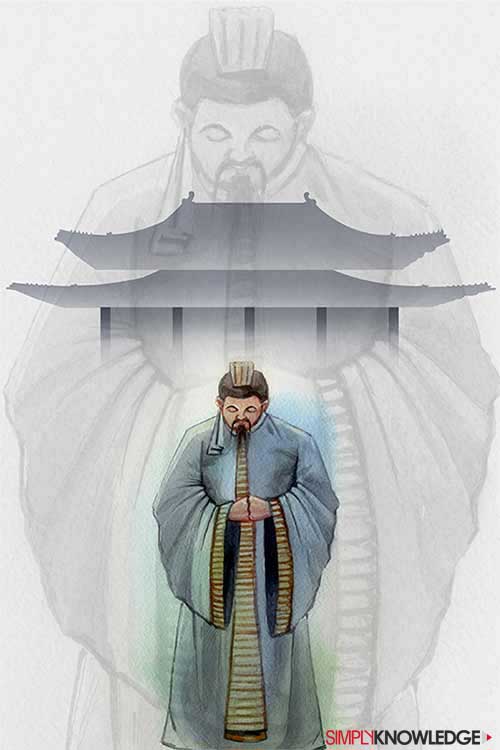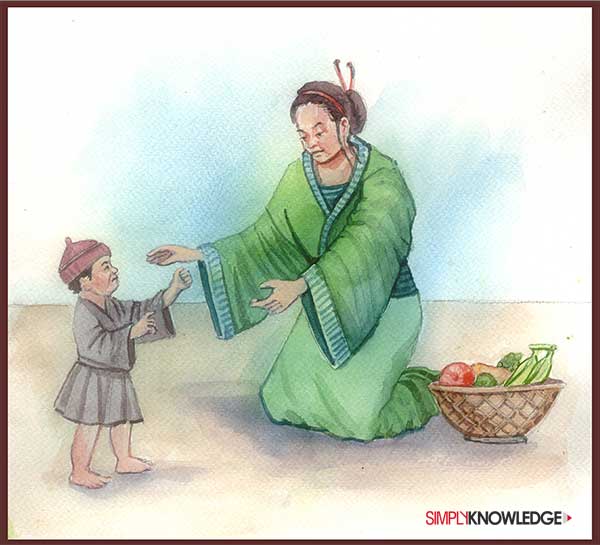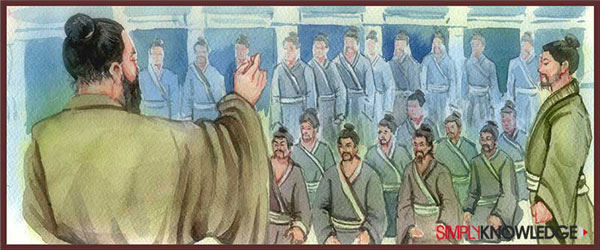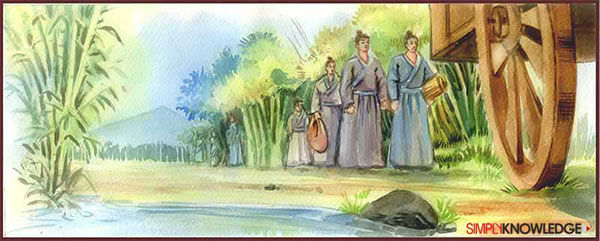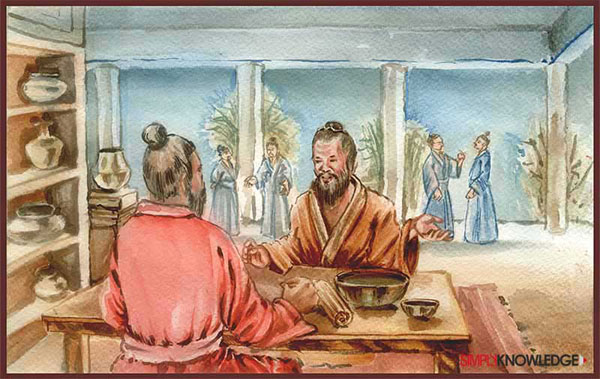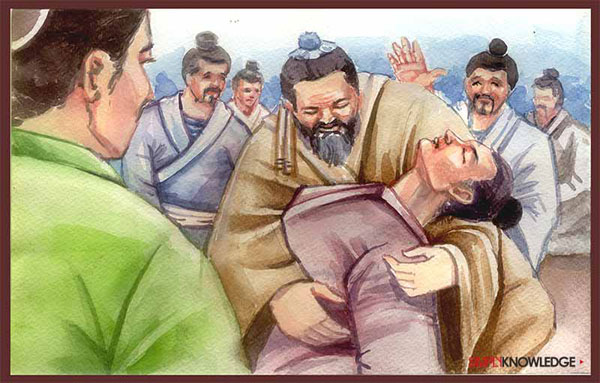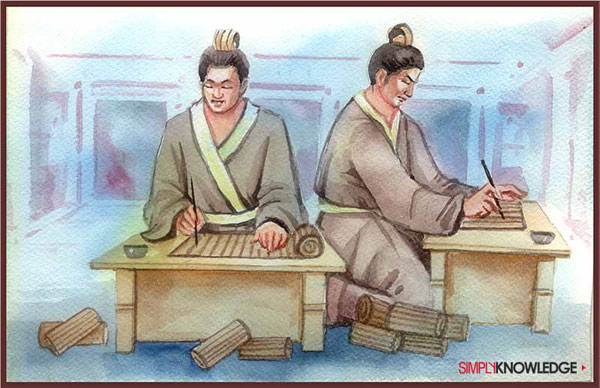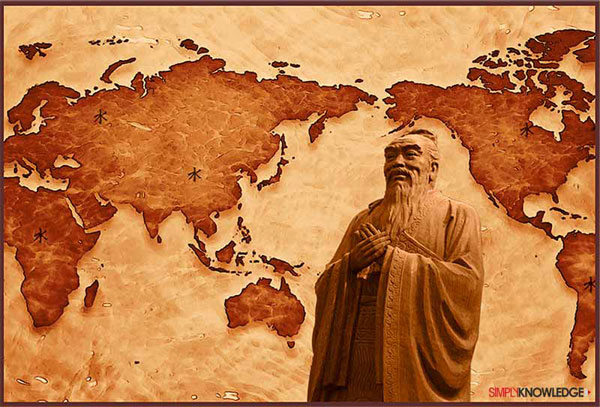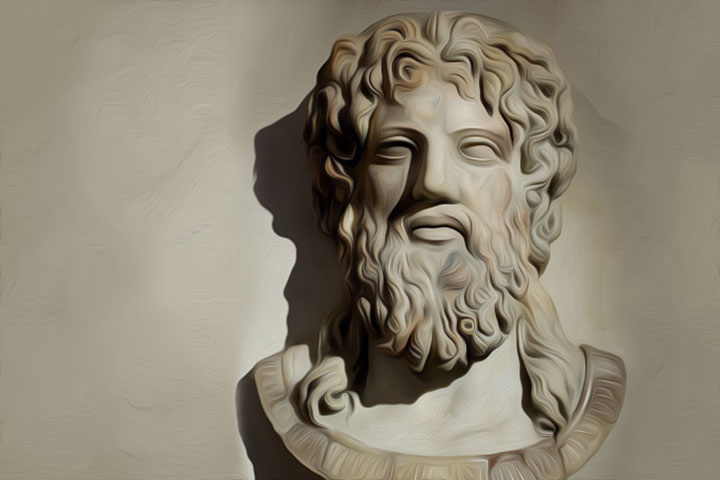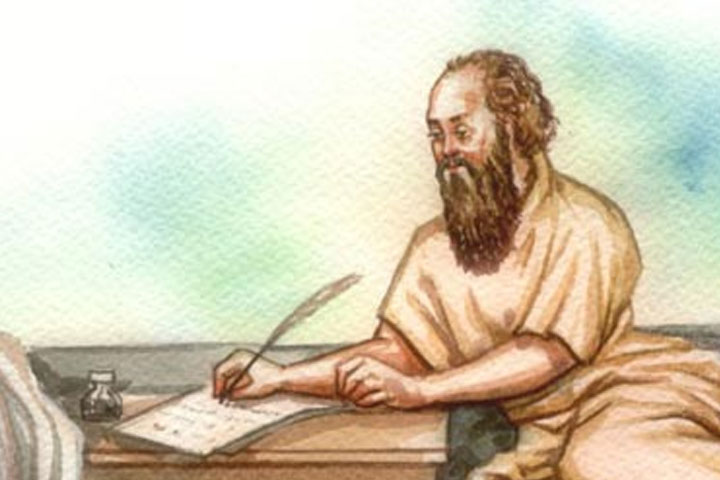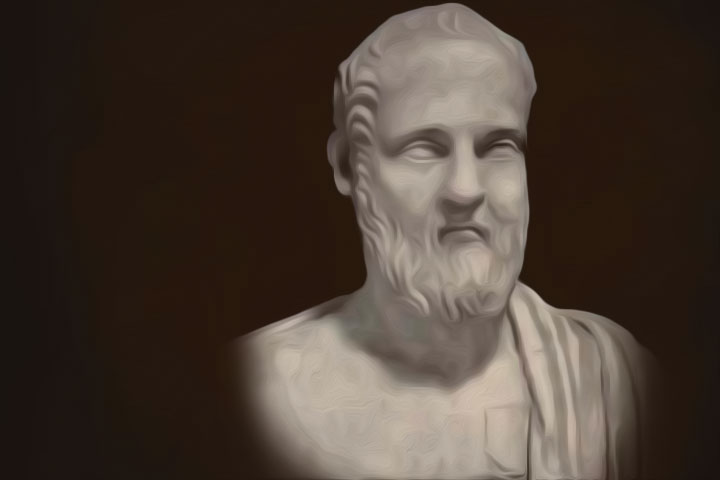

Introduction
“Choose a job you love, and you will never have to work a day in your life,” ranks among some of the foremost observations attributed to renowned ancient Chinese psychologist, Confucius. This thought recorded almost 2,500 years ago contains the secrets to a happy life in what we presume, would have been a simple world with fewer needs as compared to our complex, modern living.
To coin such a phrase was no easy task for Confucius. Indeed, he had to undergo a barrage of trials and tribulations over the years to draw conclusions such as these and more. But, he was doing what he adored. These words reflect the very basis of his guile. Because, the life of any psychologist who asserted in his era: “Do not impose on others what you yourself do not desire,” now called the Golden Rule, merits more than a mere, empirical study. Here, we delve into what made Confucius rise to such eminence that he is oft quoted till date.

Birth of Confucius
The name ‘Confucius’ is the Romanized version of his Chinese identity, Kong Qui- meaning ‘Master Kong’ or ‘The Great Master.’ Chronicles titled ‘Records of the Grand Historian’ compiled by Sima Qian, an ancient Chinese author, indicate Kong Qui was born around 551BC in the Lu state in modern day Shandong. His family, the Chou, traced its ancestry to the Shang royal dynasty. Confucius birth in the relatively desolate state of Lu is attributed to the migration of his grandfather, who fled with his family from the Royal State of Shang for safety, since ancient China was undergoing severe political upheavals.

Parentage
His father, Kong He, also known as Shiu Liang He was a nobleman from the Shang dynasty while his mother, Yan Zheng Zai was the daughter of a soldier from the Yan family. Confucius’ parents never married since prevailing traditions forbade a person of royal descent from marrying a commoner. He is thus considered as an illegitimate progeny of Kong He, who was in his 60s, when Confucius was born while Yan Zheng Zhai was about 19 years old.
Confucius was about three years old, when his father passed away, forcing his mother to nurture him single-handedly by taking odd menial jobs.
Hence, a large part of Confucius’ childhood was spent in dithering poverty.

Early education
Confucius’ royal lineage from his father helped him study under great masters such as Lao Dan, Chang Hong and Xiang. As a child, Confucius studied Chinese culture, traditions, religion, and music, which were typical basic subjects of that era.

Confucius as a teenager
During his teens, Confucius impressed his masters by excelling in all fields of his study, which included archery, polity, charioting, calligraphy, social sciences, significance of religion and ritualism to the society. A combination of these subjects helped Confucius develop his own doctrine and psychology.
He had to undertake several odd jobs to sustain his ageing mother and himself, while a student. These included coaching students already under the tutelage of some of his teachers, to hone their skills.
Though improperly documented, some such work included holding street-side plays with his bunch of students- since he was considered as a brilliant student amongst his peers, reciting poetry and narrating folklore to kids, maintaining a local temple and breeding fowl for sale at the weekly market. The street-plays, folklore narration and housekeeping of a temple gave him a deeper insight into the richness of Chinese culture.
Confucius taught his students: “By three methods we may learn wisdom: First, by reflection, which is noblest; second, by imitation, which is easiest; and third by experience, which is the bitterest.”
This proverb was inspired by his education and experiences: Confucius’ mention of ‘reflection’ implied his own knowledge garnered from studies, ‘imitation’ indicates how he repeated what he taught while coaching his peers studying under his own tutors and ‘experience’ from the varying nature of his work to eke an existence for his mother and himself.

Living with criticism
Confucius was never angered by criticism. Once, after a peer disdainfully mocked Confucius for selling chicken in the market despite his noble descent and education, he quipped: “The superior man understands what is right; the inferior man understands what will sell.” Through this statement, he rightly conveyed that he had not lost his academic brilliance by vending fowl, since it was necessary for a living while understanding where more profits can be accrued.

Rise as a master
Confucius excelled at his studies, was quick witted and ready to assist any student, regardless of who they were or whether they could pay him. He was a living epitome of his own words: “Learning without thought is labour lost; thought without learning is perilous.” He formed his doctrine of reciprocity- which meant- each teaching by a master should evoke a question and the answer should give rise to another question, by ruminating over what they had studied. As a result of his unique mentoring style blended with vast knowledge about various subjects and a burning compassion for teaching, Confucius soon gained several students from various walks of life.

Marriage and discontent
When Confucius was about 19 years old, he married I Guan. Confucius was eager to spread his doctrine, causing him to largely ignore his spouse. He never charged his students, despite his own meagre resources. However, some pupils, recognizing the hardships of their cash-strapped teacher, would ensure his needs were met to some extent.
Confucius’ financial woes impelled his marital life to run into doldrums. Thus arose a Confucian teaching for married women: “Even though you sleep intimately on the same bed and use the same cover with him, you must treat your husband as if he were your king or your father.” Explained, it implies that a wife ought to submit totally to the authority of her husband, without questioning his authority. Once, irritated by his wife Qi Guan’s incessant demands for money, Confucius indirectly chided her before his students saying: “Life is really simple, but we insist on making it complicated.”
Despite marital discord, Confucius fathered some children, though their identities remain unknown except for a son, Kong Li, who was mentored and taught extensively by Confucius and was tipped to be his successor. Further records about Confucius’ married life and other children do not exist but some historians believe, Qi Guan, fed up with Confucius’ utter disregard for his family, left with her kids for her parental home. “Wherever you go, go with all your heart,” he told his wife, as she prepared to leave him.

Rise to Eminence
Confucius continued to teach in his native state Lu, through his 20s, since the nondescript place was relatively cocooned against political turmoil being witnessed by kingdoms in other parts of China. By then, he was already a revered teacher, reputed for his unconventional doctrine at the time, combined with prevailing religious practices and traditions sacred to the Chinese but was declining due to despotic rule.
Confucius also had a loyal following of nearly a hundred pupils, all drawn from various walks of life. The Confucian doctrine at the time included two main teachings: Socio-Political and Educational: both which were fast gaining popularity in China which was then beset with moral decline and ravaged by greed rather than virtue.
Confucian political doctrine focused on the importance of self-discipline. He contended that humility and self discipline were indispensible qualities for every ruler or leader of the masses. Confucius espoused, every ruler should view his subjects with kindness, piety and virtues that could and would be emulated by the masses. “He who exercises governance by his virtue should be compared to the North Star, which keeps its place and all the cosmic bodies look towards it,” Confucius once told a pupil of royal lineage, exemplifying his political ideology. He called upon rulers to display ritual propriety, to serve as a unifying factor among their populace.

Travel and travails
Charged by the widespread acceptance and recognition of his teachings by the general population and noblemen, but dispirited by the political turmoil, Confucius, along with a handful of trustworthy and staunch followers, embarked on a journey that would take them for nearly two decades to various kingdoms, including Shang- where his father had served, Cai, Chen, Chu, and Wei. In his dialogue with one of the rulers, Confucius said: “Go before the people with your example, and be laborious in their affairs.”
He spoke eloquently with rulers, noblemen, teachers and commoners alike, castigating them for their greed and selfishness with blatant disregard to Chinese traditions of benevolence, proper behaviour and spiritual rituals. “The superior man thinks always of virtue; the common man thinks of comfort,” was a regular admonition Confucius meted to these people, earning him kudos from like-minded persons but antagonism from others- especially those seeking to benefit from the prevailing turbulence in the governments.
Confucius extolled his theory of ‘Six Arts’ for students, during his discourses with educators. These six arts- archery, calligraphy, mathematics, charioting, spiritual practices and rituals, he advocated, were vital for all students regardless of their family backgrounds. “When you are labouring for others let it be with the same zeal as if it were for yourself,” he would advise teachers. His special emphasis while educating the learned and teachers was to rekindle the Chinese traditional values- benevolence, propriety of actions and rituals while living a life of integrity- which he learnt, had dwindled during the turmoil sweeping across the land.

Meeting with Lao Tzu- the founder of Taoism
By mid-30s, Confucius had gained a formidable reputation wherever he and his ardent followers travelled. During a visit to Luoyang, the capital city of the Zhou kingdom, Confucius heard of another great Chinese scholar and his works. He learned that this eminent personality also shared similar views on deterioration of age-long Chinese practices and the needs for socio-political reforms. Confucius always considered the Zhou rulers as virtuous and their kings as educated, capable men who could restore China to its earlier glory by reunifying warring states. For Confucius, the Zhou rulers were an epitome of Chinese virtue, altruism and benevolence. He was also awed by the magnificence of Luoyang, a flourishing city whose populace seemed least affected by external turmoil.
Some nobles from Luoyang invited Confucius and his coterie to visit the royal palace, the ancient temple where rulers worshipped and the city’s huge museum that housed countless antiques and artefacts documenting the Zhou culture and its rich traditions. The curator of this museum was the same great Chinese scholar whose views were similar to those of Confucius: The curator was Lao Tzu, who authored ‘Tao Te Ching’- a book which forms the basis of Taoism.

Discord between Lao Tzu and Confucius
Lao Tzu, according to records of the era, was about 20 years older than Confucius at the time, and was considered a sage and hermit of sorts, who stayed aloof while spending most of his time studying and formulating his own doctrine. Confucius succeeded in getting an appointment with Lao Tzu with the help of some Zhou nobles.
This meeting between the two Chinese thinkers was a landmark in Confucius’ life. Lao Tzu welcomed Confucius and his followers cordially and the two soon found they shared common ground on issues related to decline of Chinese traditional values, defiling and abuse of special powers enjoyed by members of the ruling dynasty, laws and penalties.
Lao Tzu opined the existing imperial governance was archaic and hence, inept to counter existing exigencies. At this juncture, Lao Tzu and the lesser experienced but overconfident clashed over their respective beliefs: Confucius staunchly believed that morally empowered rulers could lead people by example while Lao Tzu, felt such leaders were obsolete and their governance barbaric. This led to a verbal duel between the two.
Lao Tzu lashed at Confucius, blaming him of exploiting traditional beliefs for personal gains by trying to appease despotic rulers. “A smart man would fall into adversity if he is fond of criticizing others. A learned man would put his life in danger if he keeps exposing the evils of others. When the time goes against him, a gentleman should hide himself in a safe place,” said Lao Tzu to chastise Confucius while insinuating that the meeting was over.
According to some records of this meeting, Confucius could not comprehend the gravity of Lao Tzu’s words. While leaving the museum, Confucius commented to his disciples: “I can recognize a bird since it files. I know about animals because they walk. But I have never seen a dragon and cannot understand what it looks like or dies. Similarly, Lao Tzu is like the dragon, flying so high that he is inaccessible to all, including me.”

Loaded words
Confucius, unaware of Lao Tzu’s greatness, dismissed the warning as feeble and meaningless. But the older thinker’s words were in reality, a veiled warning. Confucius and his disciples would soon learn what Lao Tzu was trying to imply: The great danger to which they had exposed themselves. Confucius escaped at least one ‘assassination’ attempt while travelling through a forest with his students, while on their way to the Sung kingdom.
Also during their journey, they were held prisoners after being suspected as rebels trying to overthrow a local monarch. However, Confucius managed to prove his identity and was released after due apologies from his captors. In another instance, the group was captured by soldiers suspecting them as bandits, but timely intervention by some nobles, helped Confucius and his motley group wriggle out of the situation.

Learning despite adversities
Confucius, an ardent learner, utilized every opportunity to acquire new knowledge from whoever he encountered. Occasionally, his students felt their master was wasting time conversing with persons of no social standing or individuals too haughty and unwilling to change. Confucius would often remind his pupils that learning never ends. “When you know a thing, to hold that you know it, and when you do not know a thing, to allow that you do not know it - this is knowledge,” he would advise them often, as a definition of knowledge and learning from others.
He continued travelling to various kingdoms and seats of learning relentlessly, teaching his doctrine to any interested person. Confucius believed every person had a right to knowledge. “The will to win, the desire to succeed, the urge to reach your full potential... these are the keys that will unlock the door to personal excellence,” were his keywords, while teaching.
Confucius and his entourage travelled for over a decade. Most rulers accorded them a warm welcome and Confucius was given a patient ear at every meeting by monarchs, nobles and scholars. While some who heard Confucius agreed to his doctrine in principle, others despised his thoughts as antiquated.
Confucius attempted to persuade some rulers and nobles to give him a government post, with no success. Rulers who were awed by his preaching made no efforts to implement them.

Disgruntlement and last days
Distressed by this complacency and apathy by those in power towards his thoughts for a greater Chinese revival, Confucius decided to return to his home state, Lu and resume his work as a teacher. The people of Lu warmly welcomed the great master as a hero. The celebration was short lived: Confucius lost his beloved son and disciple Kung Li of illness while another unflinching student was killed in a border skirmish between the Lu army and some invaders. Confucius chose to isolate himself for prolonged periods during the day or spend time brooding alone. “Silence is a true friend who never betrays,” he replied, if questioned about his morose demeanour- betraying the insurmountable anguish he experienced over the loss of his son.
Confucius, who was aged over 50 years by now, was a disgruntled man. He lived a hermitic life for the remaining years of his life, teaching his doctrine and newer findings to remaining followers and fresh students. “Old age, believe me, is a good and pleasant thing. It is true you are gently shouldered off the stage, but then you are given such a comfortable front stall as spectator,” he would tell his students as he encouraged them to teach his doctrines to newer pupils.
Despite growing age and declining health, Confucius remained engaged in his studies and teachings, whenever possible. He is credited with authoring three major works during this period: ‘Book of Odes’ on ancient Chinese poetry, the revised historical account called ‘Book of Documents’ and a political commentary of the rule of the 12 dukes of the Lu state, titled ‘Annals of the Spring and Autumn’.

Death
Confucius passed away in 479BC in Qufu, his hometown in the Lu state, of natural causes. “If we don't know life, how can we know death?” was one of his common refrains during these last days, reflecting thoughts on his own death but moreover, the loss of his son. Because Confucius, despite his teachings and status, personally believed he knew nothing about life itself.
Last rites on the mortal remains of their great master were performed by Confucius’ students. Though the teacher had passed away, his teachings had left a tremendous impact on these pupils, who decided to compile Confucian doctrine, including his discourses, details about discussions on polity and governance with various rulers and nobles and Confucius’ thoughts.

The Analects or ‘Lun Yu’
Painstakingly compiled over the years by his ardent followers, almost every facet of Confucian doctrine was thus chronicled into a manuscript that was commonly called the ‘Lun Yu’, which means: ‘Selections from or parts of a literary work or group of works’ aptly described by the Greek word ‘Analektos’ or the Anglicized version, ‘Analects’.
The ‘Lun Yu’ remained largely forgotten for several centuries. Its relevance was reduced to academic discussions among Neo-Confucians- a breed of students and thinkers who studied and adopted Confucius’s teachings.

Social psychology
Confucius’ social psychology focused around the principle of loving one-another with utmost adherence to self discipline. The Golden Rule: "What you do not wish for yourself, do not do to others," formed the basis of this social psychology, which focused on altruism- the characteristic of sacrificing oneself for the benefit of others. Confucius laid special emphasis on respect to elders in a family and the society. “Without feelings of respect, what is there to distinguish men from beasts?” he would ask, while discussing respect in context with societal and family hierarchy.

Basis of Confucian doctrine
Confucius regarded a family as the pillar of any kingdom. He espoused, children and adults living in families that regard religion and ritual important, are lesser likely to violate the laws of the land. His thoughts are enshrined in the ‘Lun Yu’ as: “The strength of a nation derives from the integrity of the home.”
The Confucian political doctrine revolved around ‘Li’ or ritual propriety by rulers. Confucius believed that ritual propriety enables people to develop the spirit of compassion for one-another. He argued that moral and social codes are insufficient to prevent behavioural aberrances or crime. If citizens are self-motivated by compassion and caring, they would attain a high level of morality, thus refraining from unlawful acts.
Rule, Confucius said, should never be enforced by fear of the law. Adherence to law comes naturally when people are spiritually and morally awakened, he postulated. Confucius said strict laws will drive home a sense of fear but violators will become fugitives, thus losing self respect while severely damaging the reputation of their family.

Posthumous recognition
Efforts by his disciples and Neo-Confucians- a group that kept alive teachings of the great master, finally began culminating into tangible achievements, nearly 400 years after Confucius’ death. By 4BC, Confucius was considered as a sage whose works went unrecognized due to circumstances prevalent during his time.
But in 2BC, the Han dynasty which ruled China for several centuries, adopted most of Confucian principles and ideas as the very basis of their national ideology. His teaching: “An oppressive government is more to be feared than a tiger,” is claimed to have influenced the Han rulers profoundly, that till date, their reign is considered as one of the golden eras of Chinese history.
This recognition led to wider proliferation of Confucian works within China and later to neighbouring kingdoms in present day Mongolia, the Koreas and Japan, whose rulers adopted Confucian principles partly or fully for governance.

Modern day acceptance of Confucian principles
Confucius now is widely considered as a pioneer of Chinese school of thought and psychology. He could aptly gauge human thought and predict behaviour depending upon prevailing circumstances. And truly, his observation: “To practice five things under all circumstances constitutes perfect virtue; these five are gravity, generosity of soul, sincerity, earnestness, and kindness,” continues to have profound impact on our daily lives today- almost 3000 years since the death of this great Chinese master. “The cautious seldom err,” which Confucius told his students is today a byword for industrial safety implying caution prevents accidents.
Next Biography





